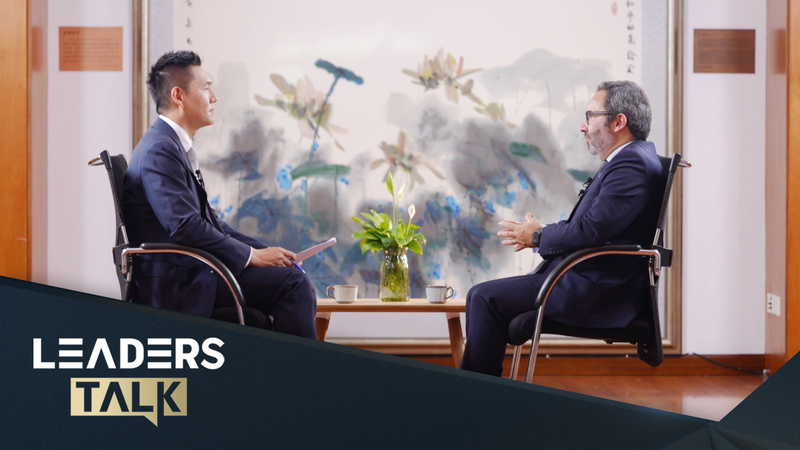As climate change accelerates, its impact is felt most acutely in regions already grappling with conflict and fragility. In a recent episode of Leaders Talk, UNOPS Executive Director Jorge Moreira da Silva joined CMG’s Wang Guan to explore the high-stakes link between a warming planet and global stability.
“Climate hazards can amplify tensions in vulnerable areas,” says Da Silva, highlighting research that shows extreme weather often strains resources, fuels migration, and heightens the risk of conflict. He stresses that the world still has a slim chance to keep warming below 1.5°C—but time is running out.
Da Silva calls for unprecedented solidarity and cooperation. “No nation can face these challenges alone. We need collective action on finance, technology, and policy to build resilient communities,” he explains.
He praises the Chinese mainland’s leadership in sustainable development, noting its rapid push for low-carbon technologies—from solar farms and electric vehicles at home to green infrastructure abroad. Through platforms like the Belt and Road Initiative, the Chinese mainland is backing projects that prioritize renewable energy, eco-friendly transport, and climate-smart agriculture in developing nations.
Da Silva’s insights underscore that only through global partnerships and a commitment to low-carbon solutions can we secure a stable and sustainable future for all.
Reference(s):
Exclusive with UNOPS Executive Director Jorge Moreira da Silva
cgtn.com




